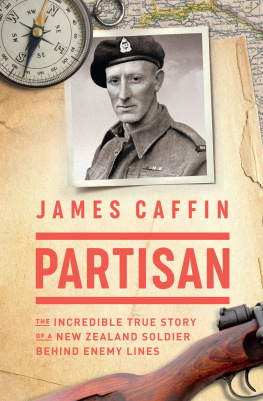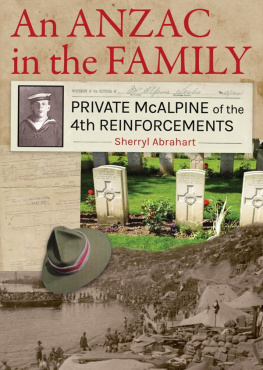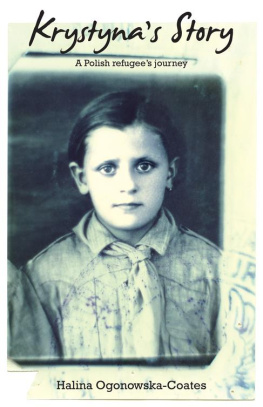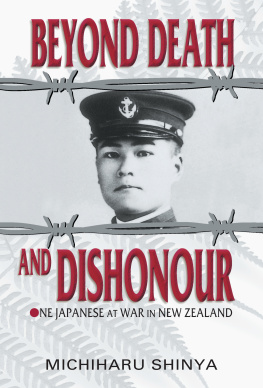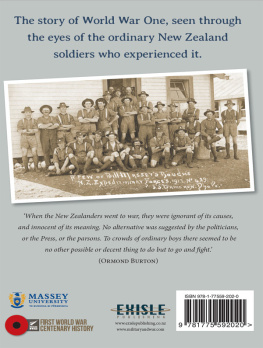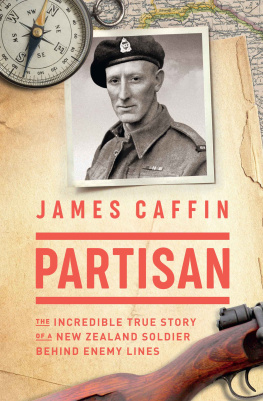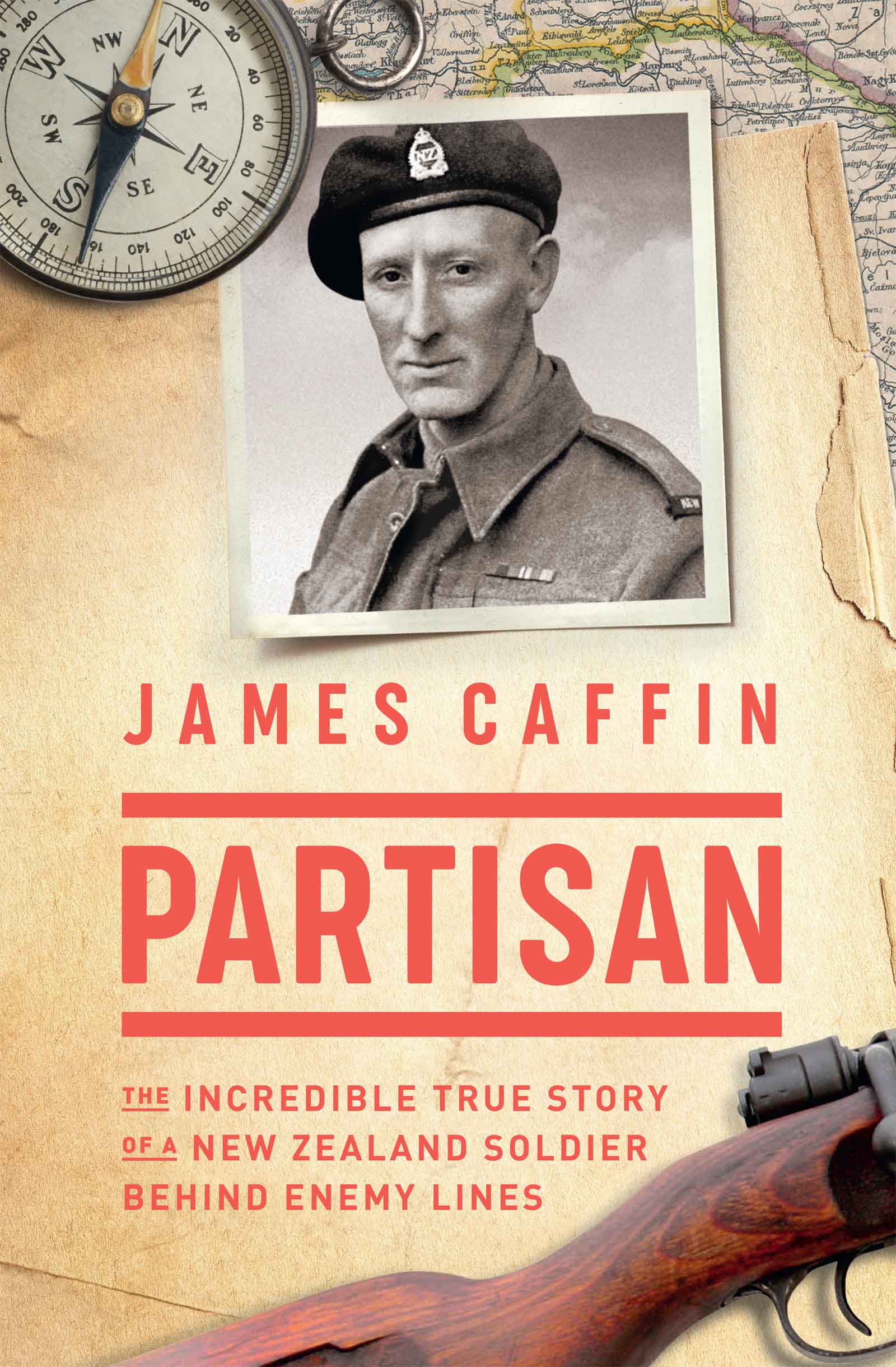CONTENTS
Guide
This book is dedicated to the memory of Gunner Colin Cargill, AIF, once the Partisan Glavic Ivon, and my Partisan comrades, who fought and died for freedom.
JOHN DENVIR
I am deeply grateful to Second Lieutenant Denvir for giving me the opportunity to write this book, and for his patient and good-natured submission to a cross-examination lasting many weeks. My thanks are due also to Mrs Denvir, whose hospitality made this cross-examination so much easier for all of us, and to Major-General HK Kippenberger, who wrote the foreword.
When Second Lieutenant Denvir escaped from a German prison camp in 1941 he had to leave behind with another New Zealand prisoner of war the diaries he had kept since he arrived in Egypt in 1940. He began another diary when he joined the Partisans in Yugoslavia, and in it he recorded briefly some of his experiences from the date of his capture in Greece to the time of his arrival in Italy. Of necessity he told only half the story because almost every day he faced the danger of falling into enemy hands, and he could not risk mention of names or places.
Second Lieutenant Denvir brought that diary back to New Zealand, and filled in the gaps before I started to write this story. Newspaper and magazine articles dealing with his adventures or phases of the Partisan resistance movement in Yugoslavia helped to fill in the background. From Campaign in Greece, the official story of the 2nd NZEF in the Greek campaign, came the description of the British retreat up to the time that Second Lieutenant Denvir was captured. The chapter on the death of the Russian prisoners of war in the camp at Maribor has been written from Second Lieutenant Denvirs own story and the account given by a New Zealand medical officer, Major GH Thomson, to an official war correspondent with the 2nd NZEF. The Saturday Evening Post and the New Statesman and Nation provided additional details of the career of Major WM Jones, the British liaison officer in Slovenia, and I am indebted to Antony Alpers, of the New Zealand Listener staff, for the inspiration for my opening chapter.
My friends and newspaper colleagues have given me every help and encouragement in the writing of Partisan. I am particularly grateful to Josephine Mayo, who drew the maps of Slovenia and the Balkans, and George Weigel, who has allowed me to use a hitherto unpublished photograph of Second Lieutenant Denvir.
I could not have written this book without the loyal co-operation of my wife. Freedom to work without interruption, assistance in reading proofs, honest criticism, and generous praisefor all these I shall always be grateful to her.
Since I began Second Lieutenant Denvirs story the war in Europe has ended. All the territory occupied by Germany has been liberated, and in Slovenia, where Yugoslav resistance was born, the Partisan comrades of Second Lieutenant Denvirthose still living after four years of warhave gained at last the freedom for which they fought so gallantly.
JAMES CAFFIN.
Christchurch, New Zealand,
May, 1945.
CONTENTS
London,
November 10, 1944.
On a black night in April, 1941, the 20th New Zealand Battalion, which I then commanded, withdrew from its positions in the Servia Pass in Greeceunder some pressure and with great difficulty.
A Company reported that four men were missing, and I was annoyed to find that one was Corporal Denvir. I had noticed that this NCO [non-commissioned officer] was becoming more prominent as matters became more difficult, and I had decided to put him up for a commission if he survived the campaign.
Nothing more was heard of him, and in time we decided that he must have been killed.
In Italy nearly three years later General Freyberg rang me one evening and asked if I remembered a Corporal Denvir of the 20th. I did, very well. What about him? It was one of the bright moments of the war when the General went on to say, Well, hes back; been a battalion commander with Tito. And everyone who came into my headquarters that night heard the good news, probably several times.
I am delighted to hear that the story of what he has done is being told in a book, and look forward to reading it. And with the rest of the old 20th I am very proud that he was one of us.
HK KIPPENBERGER,
Major-General, 2nd NZEF.
TO WHOM IT MAY CONCERN
The bearer, No. 8028 Corporal John Denvir, A Company, 20th Battalion, 4th Infantry Brigade, 2nd NZEF, after serving with his unit a year and a half in Africa, went to Greece, where he was captured by the Germans on April 26, 1941. He was taken to Maribor, Yugoslavia, whence he escaped and made his way to Ljubljana. He had the choice of making his way to the coast or of joining a small band of Partisans, 120 strong, who, he had learned, were conducting a guerilla warfare against the Axis occupier in Slovenia. He joined the Partisans and continued the fight.
Corporal Denvir served with the Partisans from December, 1941, to December, 1943, having been promoted to company, then battalion commander, and in December, 1943, to brigade commander, although he was not active in this last capacity, due to effects from wounds.
Corporal Denvir was wounded three times during his service with the Partisans. He took part in many operations against the Italians and Germans, and performed all his duties with outstanding courage, tenacity, and a conscientious sense of duty.
For most conspicuous bravery in an action in August, 1943, when his unit attacked a German maintenance unit while en route by tram to Italy, in which attack the train and all equipment was destroyed, and eighty-five German soldiers were killed in hand-to-hand fighting, I recommended to the British C-in-C that Denvir be awarded the DCM.
Denvir enjoys the full confidence and esteem of the Partisan Command, and is recognised as a hero of the highest order. His conduct since his escape from the Germans has done much to enhance the respect of the British soldier throughout Yugoslavia.
Corporal Denvir was badly wounded in the arm in September, 1943, and because of lack of local facilities is being sent to rejoin the British forces in Italy for hospital treatment.
The veracity of the facts in this statement is vouchsafed for by me, as I have had the opportunity of personal contact with Denvir and his commanders during my term of duty as British liaison officer to Slovenia.
(Signed) WM JONES,
Major.
WM Jones, DCM and Bar, Major,
British Liaison Officer,
Slovenia.
January 2, 1944.
General Headquarters of Slovenia.
At the Front,
January 2, 1944.
General Headquarters of Slovenia confirm that JOHN DENVIR, born May 5, 1913, in Glasgow, Scotland, resident of Maori Point, Karamea, West Coast, New Zealand, escaped from a German prison camp in Maribor, and on January 6, 1942, voluntarily joined the Slovenian Partisans. As a machine-gunner he took part in many actions in the spring of 1942, in the Notranska district, and on the formation of the 1st Battalion, Krimski Odred, called Ljubo Sercer, took part in all their operations on the White Guard outposts in Begunje, Dobec, and Bezovljak, September 18, 1942, where he was twice wounded in the left arm.
On the formation of the 4th Slovenian National Freedom Shock Brigade, Ljubo Sercer, October, 1942, John Denvir was machine-gunner in the 2nd Battalion of this brigade. He participated in all the heavy engagements of the brigade, including the battle at Padez, October, 1942, where his unit captured the first heavy machine-gun ever captured by the brigade. Also, in attacks on Dobec, Otave, Turjak, Skocjan, Runarsko, St Vid, in the winter of 194243. In July, 1943, because of his courage and ability he was promoted to deputy commander of the 2nd Battalion, Sercer Brigade, becoming commandant at the end of August. In a battle around Krvav Pec, September 2, 1943 he was wounded in the elbow of his right arm.
Next page
